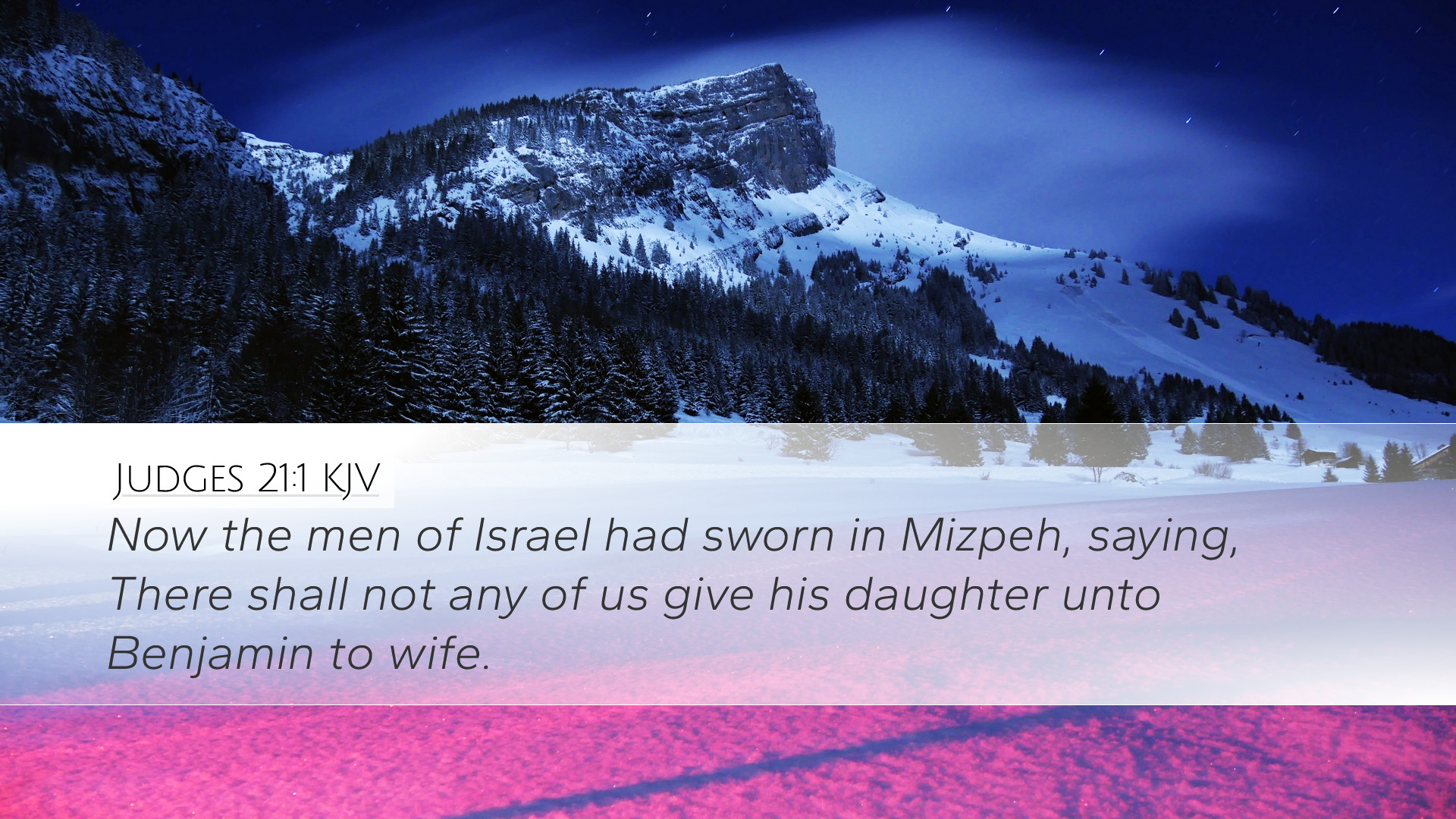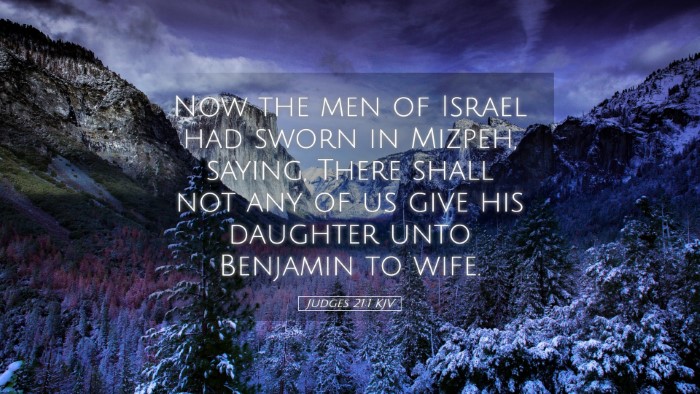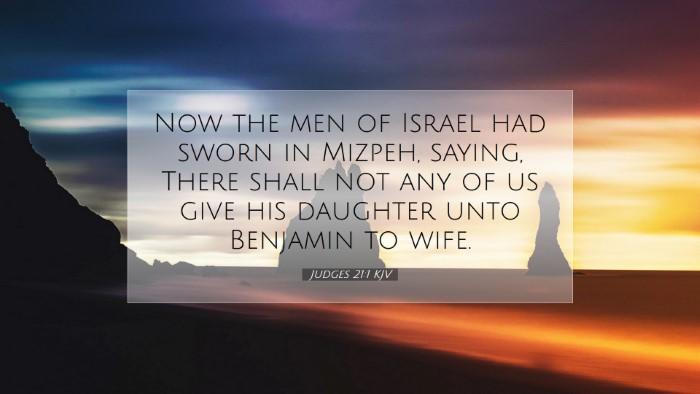Bible Commentary on Judges 21:1
Verse: "Now the men of Israel had sworn in Mizpeh, saying, There shall not any of us give his daughter unto Benjamin to wife."
Overview
The verse from Judges 21:1 takes place in the context of a grave situation following the civil strife among the tribes of Israel, particularly involving the tribe of Benjamin. It reflects a moment of national decision-making that has far-reaching implications for the people involved, notably their adherence to vows and the consequences of collective actions.
Contextual Background
This statement is situated at the conclusion of the narrative regarding the Levite and his concubine, which ultimately leads to an ignominious conflict resulting in the near extinction of the tribe of Benjamin. In the aftermath of this conflict, the Israelite leaders gather to address the devastation wrought by their own hand and its implications for the tribe’s future.
The Significance of the Vow
The vow taken by the men of Israel at Mizpeh signifies their commitment to prevent any intermarriage with the Benjamites. This was intended as a decisive act against the perceived immorality and violence stemming from the Benjamin tribe's actions. Such vows carry tremendous weight in Biblical law and reflect the seriousness with which the Israelites took their covenantal obligations.
Insights from Matthew Henry
- Context of National Responsibility: Henry points out that this vow showcases a tendency among the tribes to hold each other accountable for the moral conduct of their members, suggesting a collectivist approach to sin and its ramifications.
- Consequences of Vows: He emphasizes the importance of such oaths in Israelite culture, indicating that the men of Israel were earnest in their commitments, which speaks to their understanding of divine justice.
- Reflection on Idolatry: Henry draws a parallel between this situation and the broader theme of idolatry among the tribes of Israel, as intermarriage often led to spiritual compromise.
Insights from Albert Barnes
- Historical Context: Barnes provides a deeper dive into the historical framework, explaining that this oath reflects the urgency of the moment—the threat of Benjamin’s complete destruction had led to drastic measures, revealing the tension between justice and mercy.
- Narrative Implications: Barnes notes that the vow was perhaps excessively zealous and ultimately led to troubling consequences, including the exacerbation of the plight of those caught in the crossfire.
- Legal and Moral Dilemmas: He points out the ironies inherent in the Israelites' promises, attempting to uphold justice but inadvertently creating further injustices.
Insights from Adam Clarke
- Analysis of the Vow: Clarke calls attention to the collective mentality of the men who made the vow, providing insights into their motivations and societal pressures that influenced their decisions.
- Ethical Considerations: He articulates a concern over the ethical implications of collective vows and the necessity for individual moral agency, suggesting that the Israelites were unwittingly harming innocent individuals.
- The Role of Divine Providence: Clarke further reflects on how divine providence operates amid human failure, indicating that despite their misguided actions, God still works within the framework of humanity’s flawed decisions to achieve His purposes.
Theological Reflections
This verse serves as a poignant lesson on the weight of words and commitments. The men of Israel's vow parallels contemporary discussions around oaths and promises within a theological framework, encouraging modern readers to reflect on the significance and implications of their own promises.
Implications for Pastoral Practice
- Teaching on Vows: Pastors can use this passage as a sermon illustration on the weight of commitments and the importance of upholding integrity in speech and conduct.
- Encouragement for Accountability: This story serves as a reminder of the need for accountability within the church community, especially regarding leadership and moral conduct.
- Grace and Forgiveness: Pastors may also emphasize the themes of grace and the opportunity for redemption, reminding congregants that even in times of failure, God’s mercy prevails.
Application for Students and Scholars
- Exegetical Study: The text offers a rich opportunity for exegetical study, especially concerning the historical context and cultural implications of oaths in ancient Israel.
- Comparative Analysis: Scholars may compare this narrative with other biblical accounts of oaths and vows to explore the dynamics of collective versus individual responsibility.
- Theological Inquiry: The implications of divine justice and mercy woven through this narrative prompt deeper theological inquiry into how God works through human failures and societal dynamics.
Conclusion
Judges 21:1 is more than a historical note; it emphasizes the complex interplay of human will, societal norms, and divine sovereignty. The insights from the commentaries provide a comprehensive understanding of the gravity of collective promises and their consequences, echoing through the ages as a warning and a guide for contemporary faith communities.


